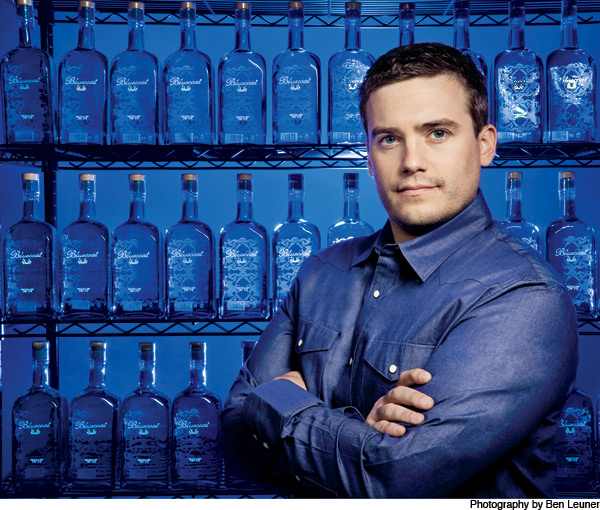Buy Local Booze (Philadelphia Distilling Can Help)

IN A DRAB, messy warehouse in the Far Northeast, tucked away between a billboard company and a manufacturer of pre-inked stamps, Robert Cassell is on the move. This is not surprising. Despite his stocky, slightly doughy build, he’s constantly in motion.
Dressed today in a t-shirt, khaki shorts, tube socks and sneakers, he checks gauges, turns valves, scribbles the occasional note. Next, he pumps purified water into his top-of-the-line Forsyth hand-hammered copper-pot still from Scotland. What he’s doing is artful and romantic, but it’s largely science. He can hijack a casual conversation about gin martinis and dive into a tedious discussion of something called “Raoult’s Law” and “upward-sloping lye arms.” He’s cutely geeky and admirably enthusiastic, with an honest face that still gets him carded on occasion, even at age 32. You just wish you could comprehend half of what he says.
But when it counts, Cassell, the co-founder of Philadelphia Distilling, can be very clear indeed. “I believe,” he tells me, standing in the middle of his factory floor, “that people are going to want their spirits in the same way that they want their beer and their food.”
Ah, yes. “Buy local!” It’s the motto that, as a city, Philadelphia has come to emphatically embrace. We seek out restaurants whose chefs pride themselves on being pals with the local farmer who raised the pig gracing our plate. We buy micro-roasted coffee beans in Kensington, drive miles to pick our own zinnias in Pemberton, travel to cheese caves outside Lancaster to find the perfect chèvre. We’ll spend three times as much on a misshapen tomato just because it’s grown in some Salem County field.
Could liquor be the final frontier for our locavore obsession? Yes, says Cassell, and in the not too distant future—if he can manage to get our creaky state legislature to change a few half-century-old laws, and fend off interference from the spirits industry’s Goliaths, who don’t exactly see him as the heroic pioneer he thinks he is. If he succeeds, we may all soon be stocking our home bars with a wide array of Philadelphia-made spirits, making this Boyertown native wealthy in the process. “The craft spirits industry is going to be huge,” he promises. “And we’re in it at the very beginning.”


